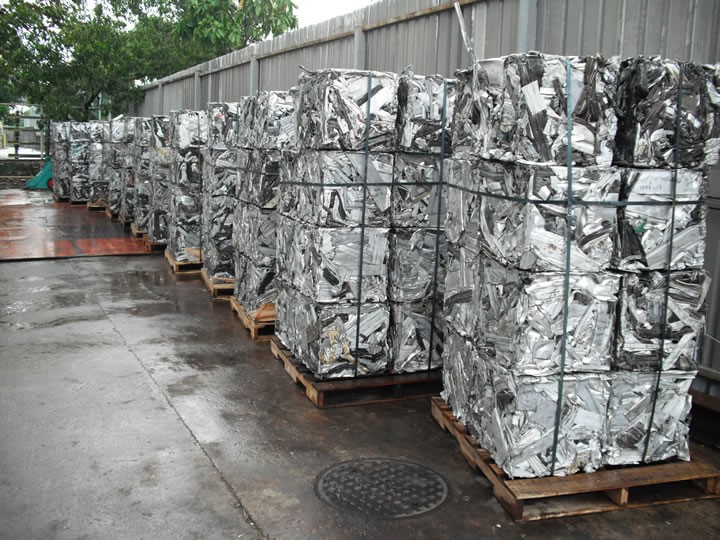

The U.S. and China trade war is having an impact on aluminium scrap traders and scrap recyclers. On Aug. 23, each country began imposing new rounds of penalties on each other. The latest round included China’s 25 per cent tariff on OCC, recovered paper, scrap plastics and various recovered metals.
According to the Institute of Scrap Recycling Industries (ISRI), U.S. aluminium sent to China now has a 50 per cent tariff on it. China increased the tariffs to 50 per cent from 25% imposed in April on August 23.
{alcircleadd}
U.S. export statistics show penalties on aluminium scrap by China has reduced scrap shipment to China. The country exported 315,000 tonnes of aluminium scrap to China from January to June. In the year 2017, US exported 820,000 tonnes of aluminium scrap to China. The export volume is constantly dropping after the implementation of the tariffs. In May, the first full month after the 25 per cent tariff had kicked in, the volume dropped to 40,000 tonnes from 60,100 tonnes in April. In the month of June US exported about 37,500 tonnes of aluminium scrap to China. Looking at the current trend, the scrap export volume for the whole year 2018 is expected to stand at about 525,000 tonnes.
US recycling operators and local consumers were the first victims of the ongoing trade war between China and the US. Consumers who collect scraps hoping to make money by scrapping already are seeing far less money in return for scrap. The single most recycled consumer product in the United States is the aluminium can.
Michigan has about $1 billion in total exports for products to China at risk because of new tariffs, according to the latest data from the U.S. Chamber of Commerce. Other than agriculture products, such as some vegetables, dairy items, tomatoes and beans, about $24.3 million in aluminium waste and scrap exports to China from Michigan are put at risks by the new Chinese tariffs.
Detroit scrap yard sees drop in scrap prices. Robert B. Kimmel, a third-generation scrap metal dealer and owner of Big Kimmel Scrap Iron & Metal Company noted his business is already experiencing price drops from domestic steel and aluminium mills and foundries, where his company sells recycled metals it buys. It is because of the availability of extra scraps in the market due to export disruptions.
"As tariffs have impacted foreign consumption of our exports, we now have an oversupply domestically of both, steel, aluminum and stainless scrap," Kimmel said.
Bloomberg and Reuters reported that talks between the US and China have not resulted in any significant progress.
Responses








